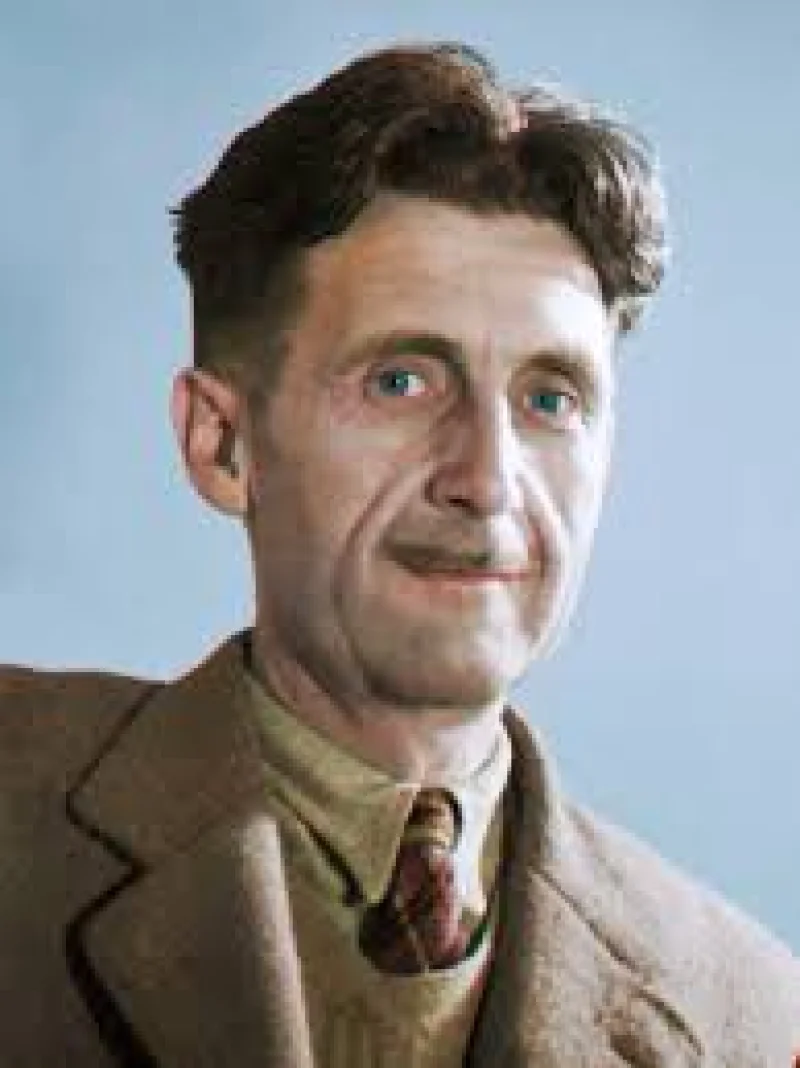Short Summary
George Orwell was a British writer, journalist, and critic known for his profound insights into social injustice and totalitarianism. His most famous works, "1984" and "Animal Farm," remain influential in literature and political discourse. Orwell's writings reflect his advocacy for truth and his criticism of oppressive regimes, earning him a lasting place in the canon of 20th-century literature.
Early Life & Education
George Orwell was born Eric Arthur Blair on June 25, 1903, in Motihari, India, where his father worked for the British colonial civil service. His family returned to England in 1904. Orwell attended St Cyprian's School in Eastbourne, where he was a scholarship student, then proceeded to Eton College. Despite his academic promise, he did not attend university. Instead, he joined the Indian Imperial Police in Burma, an experience that profoundly impacted his views on imperialism and class, which later influenced his literary work.
Career Highlights
Orwell left the Indian Imperial Police in 1927 to pursue writing. He published his first book, "Down and Out in Paris and London," in 1933 under the pen name George Orwell. His experiences in the Spanish Civil War, documented in "Homage to Catalonia," deepened his disdain for totalitarianism. Orwell's critical essays and reviews solidified his reputation as a keen social commentator. The publication of "Animal Farm" in 1945 and "1984" in 1949 established him as a leading voice against tyranny and censorship, cementing his legacy as a key figure in literature and political thought.
Major Achievements
- "Animal Farm": A satirical allegory of the Russian Revolution that critiques totalitarianism.
- "1984": A dystopian novel exploring themes of surveillance, truth, and oppression.
- Contributions to political journalism, offering insightful critiques on power and social justice.
Famous Quotes
- "In a time of deceit telling the truth is a revolutionary act."
- "All animals are equal, but some animals are more equal than others."
- "Big Brother is watching you."
Interesting Facts
- Orwell's real name was Eric Arthur Blair; he adopted his pen name to separate his personal and professional lives.
- He was severely injured in the throat by a sniper during the Spanish Civil War.
- Orwell's novel "1984" introduced terms like "Big Brother," "doublethink," and "thoughtcrime" into popular discourse.
- He was an advocate for clear prose and developed rules for effective writing.
Legacy / Influence
George Orwell's legacy endures through his incisive critiques of authoritarianism and his advocacy for individual freedom and truth. His works continue to be studied for their literary merit and political insights, influencing writers, thinkers, and political activists worldwide. Orwell's exploration of themes like surveillance and propaganda remains highly relevant in contemporary discussions about privacy and governance.
FAQ
Q: Why is George Orwell famous?
A: Orwell is famous for his novels "Animal Farm" and "1984," which critique totalitarianism and explore themes of political oppression.
Q: What is "Big Brother"?
A: "Big Brother" is a character from "1984," representing the oppressive surveillance state in the novel.
Q: Did Orwell fight in any wars?
A: Yes, Orwell fought in the Spanish Civil War, where he was wounded.








